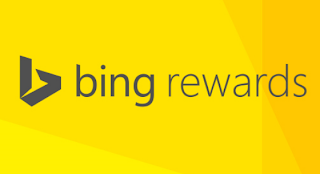1) Buy Gift Cards You'd Use Yourself
I'm not saying you should always buy gift cards that you'd use yourself, but I think it's a strategy that can give you options throughout the gifting season. I generally try not to buy gift cards as presents because I think they're a little impersonal. If I see that a retailer that both me and the potential gift receiver both like which offers an attractive bonus, I'll spring for it. In the event I can't find a better gift for them by the holidays I'll give them the gift card. Either way, I've given a gift to somebody I like and gotten a little bonus for myself.
2) Read the Fine Print
Of the two retailers I got bonuses from this year ($5 for $50 gift cards at DSW and $20 store credit for $100 at Banana Republic), both can be used for only a limited period of time. When you're shopping around for gift cards, be sure to read the fine print for the bonuses. If you're unsure of anything, ask somebody at the store. It's not uncommon for the bonuses to be available only for a limited period of time, on select products or for large purchases. If the restrictions are more trouble than they're worth, I'll usually pass on the offer.
3) Keep Track of Your Cards
This may sound obvious, but if you take advantage of multiple offers you may forget which ones are available when, which can cost you quite a bit in your bonuses down the line. To make sure that I'm away of when each bonus expires, I add them to my to-do list app (Wunderlist, which I would highly recommend) with a short description of when they're valid. Since I check my to-do list fairly frequently, I rarely miss out on using my bonuses. I also don't buy more cards that I can't carry on my person at all times. Going all the way to the store and forgetting your bonus gift cards is one of the worst feelings ever1.
4) If the Gift Card is for Personal Use, Make Sure You'll Use It Naturally
I spent a decent amount of time trying to word the above, but struggled. When I say "naturally", I mean you'll use the gift card bonus to purchase something you would have purchased at some point anyways. Otherwise you're going to end up buying gift cards for yourself and others that will either go unused, or will be used to buy things you didn't want in the first place. I think a reasonable test to do is ask yourself if you think you or the gift recipient would use the store credit within a calendar year. If not, maybe get a small amount on the gift card or forego it altogether. According to this article, 6% of gift cards were unused (not sure if they mean physical cards, or balances). Don't be part of the 6%!
Have you found any great bonus deals this year? Share them in the comments! Extra CuttingEdgePersonalFinance karma2 goes to those who share ones that avoid the pitfalls above (e.g. no redemption limit, usable on a wide variety of products and no minimum purchase required).
Have you found any great bonus deals this year? Share them in the comments! Extra CuttingEdgePersonalFinance karma2 goes to those who share ones that avoid the pitfalls above (e.g. no redemption limit, usable on a wide variety of products and no minimum purchase required).
1. Way worse than say, having your heart broken or taking a beloved pet to the vet (sarcasm intended). Remember, it may be gifting season but it's gratitude season above all! A missed bonus is, in the grand scheme of things, inconsequential.
2. Karma has no dollar value.







